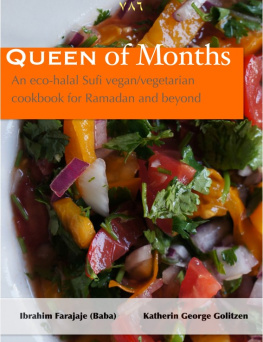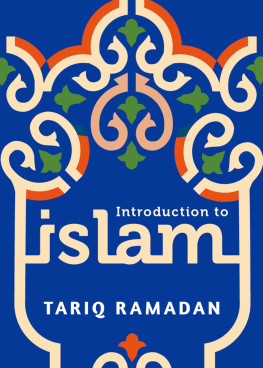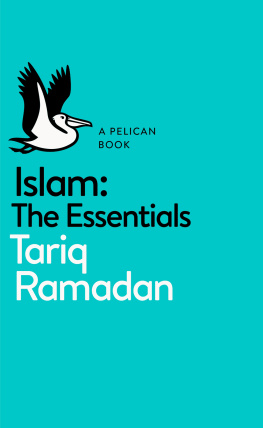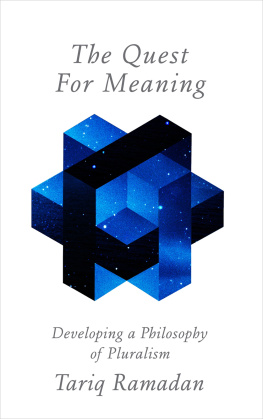
CONTENTS
OBLIGATION OF FASTING RAMADAN
Praise be to All a h, the Lord of the worlds. May All a h raise the rank of Prophet Muhammad, his Al and Companions, and protect his nation from that which he fears for it.
Fasting the month of Ramadan became an obligation upon the Muslims in the second year after the Prophetic immigration. The obligation on the believers to fast Ramadan is known from both the Quran and Hadith. It was explicitly stated in Verse 183 of Al-Baqarah:
It means: {O believers, Fasting is an obligation upon you as it was ordained upon the Muslim nations before you to help you become pious.}
Fasting was an obligation upon the nations before the nation of Prophet Muhammad. However, it was specified to fast in this particular month only for the nation of Prophet Muhammad. Ramadan is the ninth month of the year. Fasting is a great worship and it is among the best acts of obedience. In Fasting there is great reward. Im a m al-Bukh a riyy related the Qudsiyy h adith that the Prophet said that All a h said:
It means: {The reward of every good deed is multiplied from ten to seven hundred times. However, the reward for Fasting, done in sincerity will be multiplied by as many times as All a h wills: i.e. more than 700 times.}
On the day of judgment, those who used to fast in obedience to All a h will be called to enter Paradise through one of the doors specified for them. This door is called Ar-Rayy a n, it is only open to those Muslims who fasted in this world; after they enter, Ar-Rayy a n will be closed and no one else will enter through it.
After bearing witness that no one is God except All a h and Muhammad is the Messenger of All a h, one must perform the obligatory prayers (Salah), fast in Ramadan, pay Zak a h (charity), and perform Pilgrimage if able. If one has learned this, however renounces the obligation of fasting Ramadan, they will blaspheme. This is one example of the importance of fasting Ramadan.
HOW TO DETERMINE THE BEGINNING OF RAMADAN
In order for you to fulfill your obligation of fasting in the month of Ramadan, one of two matters must occur. Either the sighting of the crescent of Ramadan after the sunset on the 29 th of Sha^ban or if the crescent is not sighted then completing 30 days of Sha^ban. This is taken from the hadith of the Prophet related by al-Bukhariyy and Muslim:
It means: {Do not fast one or two days before Ramadan. Start the month when you see the crescent, and end it when you see the crescent. If you are blocked from seeing it, then complete thirty days of Sha^ban.}
INTEGRALS OF FASTING
The integrals of fasting Ramadan are two:
- To make the intention EACH night to fast the following day of Ramadan.
- To abstain from inserting any substance into the body cavities through an open inlet with the exception of your pure saliva while it is still in your mouth. To also abstain from sexual intercourse, masturbation, inducing vomit and apostasy.
The open inlets being referred to are the mouth, nose, anus and vagina.
WHO IS OBLIGATED TO FAST?
The conditions are, you must be a Muslim, pubescent and sane. However, if a person fulfills these but their body cannot tolerate fasting either due to old age or severe illness where they may be harmed if they fast, then they are excused. If fasting can worsen your illness or you may possibly die from it, then it is prohibited for you to fast. In such case, you are required to pay an expiation to a poor Muslim for every day of fasting you miss. You can pay it to the same person or to a different person each day.
The expiation is to fill a pair of average size hands cupped together with the stable food of that country. For instance, in Australia it is wheat.
10 TIPS TO REACH SPIRITUAL
DEVELOPMENT
FOR RAMADAN
1. Seek knowledge about Ramadan
The simple fact that you purchased this eBook shows me that you are invested in your development and success. This will help you ensure you do things correctly for Ramadan and in return multiplying your rewards In Sha All a h.
2. Make a Ramadan plan
Again, following the suggestions and plans put together in this eBook will assist you to make a list of goals you would like to achieve in the month and then how you will work on achieving these goals. It is important your goals are realistic and that you realize your life does not need to take an entirely different road in one month but instead you start implementing changes before Ramadan begins in order to set yourself up for success.
3. Know your life
Be wary of other things that are happening in the month or shortly before it that can affect the quality of your worship. Do you have exams during Ramadan? Moving house or any other obligations, if so, plan accordingly for these events prior to the month of Ramadan. If youve got exams or travel plans, schedule ahead. The last thing you want to do is spend Ramadan distracted with other worldly commitments. Prepare ahead for even Eid presents etc.
4. Prepare spiritually
We all know that Ramadan is about fasting, praying, reciting and reflecting on the Quran and giving in charity. Start these worships/habits early; do not expect to just switch into it as soon as the first day of Ramadan commences. Get in the habit of praying extra prayers from now, revise and regularly read/reflect on the Quran now, get used to being generous and following the Sunnah of our Prophet Muhammad [ S.A.W] now. A great way to get yourself in the habit of fasting is to fast Mondays and Thursdays just as our beloved Prophet used to do. Before Ramadan starts, ensure that you fast any days you have missed that you need to make-up from the previous Ramadan. You can also start fasting during Sha^ban.
5. Prepare your mind
Fasting is to refrain from more than just what we consume with our mouth. Start working on your patience; be extra vigilant with your conversations: ensure you are not backbiting, slandering or talking about things that are unbefitting of a God-fearing Muslim.
6. Say goodbye to bad habits
Identify and target the bad habits you have acquired and begin tackling them in order to have a smooth, effective and beneficial Ramadan. If you sleep late, fix your sleep schedule. If you are a social media junky, start cutting down the time you spend on your devices. Have a coffee addiction? Find a healthier alternative. Etc etc. These might sound much easier said than done, but I know from experience that once you commit, purify your intentions and make sincere duas for guidance then In Sha All a h these bad habits will be easier to overcome and make way to form better, healthier habits that benefit you.
7. Plan your life around your worship
For instance; instead of working through your prayer etc, take your break at a time that is close to prayer times. I always plan to have a break at prayer time, even if this means you do not have as much time eating. At least you will be spiritually fulfilled by praying and slowing down for five minutes. Do not take your phone with you to the place you pray instead forget the world as you submit yourself to the Almighty All a h.
8. Spiritual development
Mindfully and purposefully invest time in your spiritual development every single day. Do not let a day go by without reading the Quran, giving sadaqah (does not have to be money, you can donate your time to help someone), and attending religious lessons to increase your knowledge.
9. Chores!
Doing daily chores within your home, like the famous saying goes charity begins at home. Assign simple tasks and chores to young siblings or your children while you get the bigger duties done. Everyone should be working together and always making the intention that you are doing it for the sake of All a h and In Sha All a h you will be rewarded for your efforts. Also remember to take breaks, maybe a quiet time to just sit alone and read or take a power nap to be energised to face the rest of your day.
Next page













